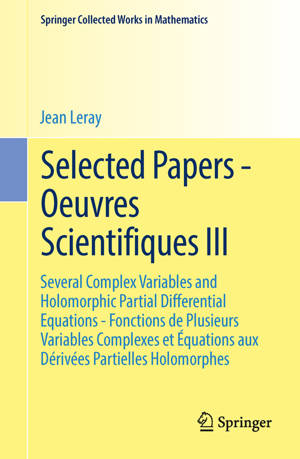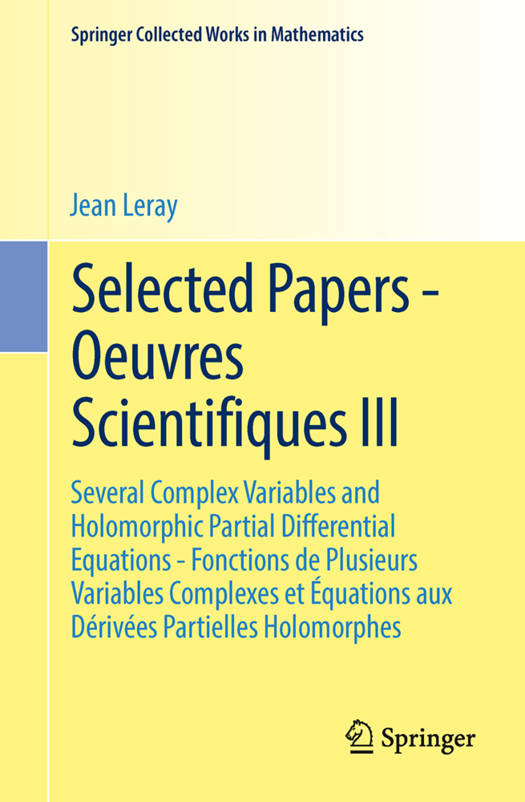
Bedankt voor het vertrouwen het afgelopen jaar! Om jou te bedanken bieden we GRATIS verzending (in België) aan op alles gedurende de hele maand januari.
- Afhalen na 1 uur in een winkel met voorraad
- In januari gratis thuislevering in België
- Ruim aanbod met 7 miljoen producten
Bedankt voor het vertrouwen het afgelopen jaar! Om jou te bedanken bieden we GRATIS verzending (in België) aan op alles gedurende de hele maand januari.
- Afhalen na 1 uur in een winkel met voorraad
- In januari gratis thuislevering in België
- Ruim aanbod met 7 miljoen producten
Zoeken
Omschrijving
Jean Leray (1906-1998) was one of the great French mathematicians of his century. His life's work can be divided into 3 major areas, reflected in these three volumes. Volume I, to which an Introduction has been contributed by A. Borel, covers Leray's seminal work in algebraic topology, where he created sheaf theory and discovered the spectral sequences. Volume II, with an introduction by P. Lax, covers fluid mechanics and partial differential equations. Leray demonstrated the existence of the infinite-time extension of weak solutions of the Navier-Stokes equations; 60 years later this profound work has retained all its impact. Volume III, on the theory of several complex variables, has a long introduction by G. Henkin. Leray's work on the ramified Cauchy problem will stand for centuries alongside the Cauchy-Kovalevska theorem for the unramified case. He was awarded the Malaxa Prize (1938), the Grand Prix in Mathematical Sciences (1940), the Feltrinelli Prize (1971), the Wolf Prizein Mathematics (1979), and the Lomonosov Gold Medal (1988).
Specificaties
Betrokkenen
- Auteur(s):
- Uitgeverij:
Inhoud
- Aantal bladzijden:
- 599
- Taal:
- Engels
- Reeks:
Eigenschappen
- Productcode (EAN):
- 9783662437728
- Verschijningsdatum:
- 28/08/2014
- Uitvoering:
- Paperback
- Formaat:
- Trade paperback (VS)
- Afmetingen:
- 156 mm x 234 mm
- Gewicht:
- 839 g

Alleen bij Standaard Boekhandel
+ 153 punten op je klantenkaart van Standaard Boekhandel
Beoordelingen
We publiceren alleen reviews die voldoen aan de voorwaarden voor reviews. Bekijk onze voorwaarden voor reviews.









